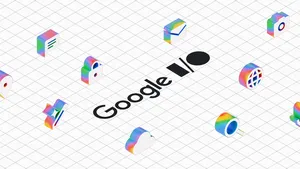Google RISE Awards support girls and minorities in tech—from Australia to Mexico

When Aboriginal and Torres Strait Islander people need support, they turn to their daughters. In a culture whose history goes back 50,000 years, 70 young girls are using technology to give their families a new way to call for help in emergencies. Last year, Engineers Without Borders Australia taught a group of students to build an emergency response beacon using basic hardware and some code to transmit a user’s location and distress message via radio.
Aboriginal and Torres Strait Islander people make up less than 3 percent of Australia’s population, and they’ve historically faced discrimination in society, including in education. According to the Australian Bureau of Statistics, dropout rates exceed 60 percent in certain regions and Aboriginal students are, on average, 2.5 years behind their peers in scientific and mathematical literacy. The problem is often compounded for girls, who tend to be left out of educational opportunities.
So Engineers Without Borders Australia (EWBA) set out to close the educational and digital divide, developing a program which brings together Aboriginal and non-Aboriginal girls to create emergency beacons from scratch by coding a Raspberry Pi to work with an LED, GPS module and FM transmitter. It will also work through issues of stereotyping and discrimination, and help the girls to better understand each other’s worlds.
This is just one example of an organization doing extraordinary work to make computer science (CS) education available to women and other underrepresented minorities. Computer science has tremendous potential to make a real difference in the world—but only when more people can access and harness it.
That’s the idea behind Google’s RISE Awards, through which we support organizations in their work to inspire students around the world with CS. Since 2010, more than 200 organizations have received an award, and this year, 37 organizations are receiving a cumulative $1.5 million to keep this vital effort humming along. Our partners facilitate programs and activities including teaching girls about the intersection of coding and music production in California, promoting computational thinking through game-design in Mexico, and inspiring children in Brazil to program alongside their parents.
This year, three nonprofits will receive a new “RISE Partnership Award”—a grant to work with one or two partner organizations to help grow their CS outreach to a wider scale. One of the three is Engineers Without Borders Australia, which plans to work with MEET—an organization with expertise on how coding skills can build relationships and break down stereotypes—to integrate their curriculum to reach up to 2,000 girls across Australia, including in Aboriginal communities.
With access to hands-on CS education, the Aboriginal and Torres Strait Islander girls are preparing themselves for the digital economy, contributing to the diversity of our future’s technology, and taking concrete steps to rise above the inequities their community has faced for decades. They’re not alone. We hope that through the RISE Awards and our other efforts to support diversity in technology, these girls and others like them can have an even greater impact. We can’t wait to see it.






